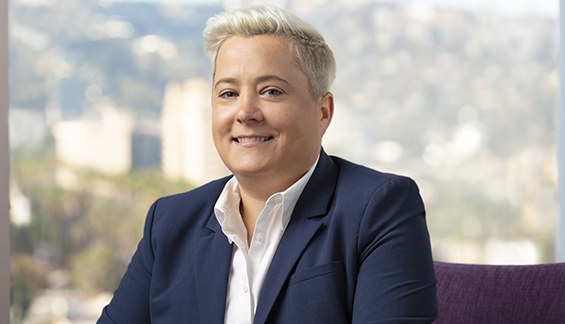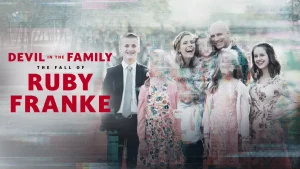Witnessing her parents’ divorce shaped her decision to specialize in custody litigation, and this month, we speak to her on how to fight for child custody and showcase to the judge you have your child’s best interest at heart.
How does a judge decide custody during divorce?
There are two main underpinnings of the public policy of what the State of California mandate judges consider when deciding custody:
- Protecting the health, safety and welfare of the child is the Court’s paramount concern; and
- To ensure frequent and continuing contact with both parents AND to encourage both parents to share the rights and responsibilities of raising a child.
What support and evidence are needed to get a judge to rule in your favor?
Clearly, judges are left with the widest discretion to try and implement the public policies I just referenced, but there are classic types of evidence that usually come up in custody cases, i.e. text messages, the dreaded Our Family Wizard emails, and even communications between one parent and their new significant other.
More and more I see parents making domestic violence claims in the beginning of cases due to the Family Code 3044 presumption
What actions may result in parents losing custody? Any tips or tricks for parents in the middle of child custody litigation?
Two main things I always tell my clients:
1. Don’t forget, you are the parent, not your lawyer. In many of my cases, parents are so afraid to “do the wrong thing” that they forget to trust their instincts as a parent. For example, I once had a father accuse a mother of neglect because she was going to drive their five-year-old in a car that had the dreaded “check engine soon” light come on. She had custody that day for the first time in a couple of weeks and he was pulling out all the stops to scare her into forfeiting her time.
I asked her, “If you weren’t in the middle of custody litigation and you were going somewhere with your child, would you have not gone, simply because the light came on?” Probably not.
2. It isn’t about your time with your child, it’s about their time with their parent. I can’t stress enough how telling it is to judicial officers when a parent uses their limited time in court to talk about why it is so important they get to see their child or spend that precious time talking poorly about the other parent.
Focus on why it is so important to the child to have a relationship (not just time, but emotional bond) with their parent – not vice versa.
If you find yourself in this situation where you are being wrongfully accused of abuse, immediately start trying to rebut this presumption
Are there any trends of issues that are coming up more and more in custody litigation?
Unfortunately, and fortunately, the fact is that more and more cases involve domestic violence now. I say “unfortunately” for the obvious reasons. It is also a fortunate trend of events because it reflects an expansion of the definition of what constitutes domestic violence and finally acknowledges the serious effects that emotional abuse (which is domestic violence in the State of California) can have on a family, especially young children.
For example, many clients come to me not understanding the full range of ramifications that abuse in the home, not directly aimed at the child, can still have on young children who witness domestic violence between their parents. Therefore, even though the act (or acts) of abuse may have been solely between the parents, if the child witnessed it, that can be considered abuse to the child and entitle the child to protection from the abusive parent under the Domestic Violence Protection Act.
More and more I see parents making domestic violence claims in the beginning of cases due to the Family Code 3044 presumption, which states that if the Court finds that a parent committed domestic violence within five years against the other parent, and/or the child, there is a rebuttable presumption that an award of sole or joint physical or legal custody of a child to a person who has perpetrated the abuse is detrimental to the child’s best interest.
This leads me to another tip I often tell my clients: If you find yourself in this situation where you are being wrongfully accused of abuse, immediately start trying to rebut this presumption, even before there is a finding by a judge. Take a parenting class. Take a weekend class about how to discipline young children appropriately. Doing those things proactively goes a long way and I have yet to see a judge count it against a parent when they do these types of things to benefit their skill set.
Have you ever had a client take a position that you refused to advocate for?
Yes. I can think of two cases where the client just absolutely refused to vaccinate their children – at all – and I knew that I could not in good conscience make that argument to the Judge, so I withdrew from representation in both instances.
Julie McAlarnen
Partner, Certified Family Law Specialist
KOLODNY LAW GROUP
9100 Wilshire Boulevard
Ninth Floor, West Tower
Beverly Hills, California 90212
Phone: 310-271-5533 Fax: 310-271-3918
E-Mail: McAlarnen@KolodnyLawGroup.com
http://www.kolodnylawgroup.com
I am Julie McAlarnen, Partner at Kolodny Law Group.
My story into Family Law
I have wanted to be a family law attorney since about 1990. The short, and least sad, version of the story is: when I was about nine years old, my parents split up and started divorce proceedings in a small town off the shore of southern New Jersey.
Fast forward about two years with a lot of tragedy and heartache in between that many fractured families face, I was left with the choice of who did I want to live with. My sisters had already left to live with my father, but I – being the youngest – was the last piece of the puzzle that never really fit fully on one side or the other.
Hence, I singlehandedly saw the difference the lawyers made in how each of my parents fared in the court system and I decided then that I wanted to be the best lawyer I could to help kids who were in a similar situation.
My favorite aspect of my role
My favorite aspect of my role now is when I have a client whom I feel is not making good choices, or is using my services to simply wage war and not for the benefit of their children. I, inevitably, at some point will tell my client (to quote Cher), “Snap out of it!”
I share my life story with my clients to try and help give them a chance to see the process and what they are doing through the eyes of their children, which is often the wake-up call they need.
My toxic tort experience and why I returned to family law
Yes, that is true and it is not a euphemism for Family Law either! For a year, I traveled the country taking depositions and learning basic litigation techniques by defending large international corporations in toxic tort litigation.
At the end of the day, I knew it was always my passion to practice family law and if I was going to work 14-hour days, I wanted to spend my time doing something I was passionate about.





















